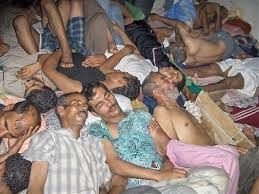
With the increasing spread of the coronavirus over the world, Egyptian political and human rights activists launched a campaign titled, “Release the prisoners”
The campaign demanded the Egyptian authorities to release the detainees due to fears of contracting the coronavirus and the spread of the pandemic in Egyptian prisons, which will also affect jailers, not only prisoners.
The campaign called for the need to release prisoners, especially the elderly, while taking all necessary legal procedures and precautionary measures, including imposition of a travel ban on the released prisoners.
Early March, four human rights groups called on Egyptian authorities to release prisoners and take needed measures in order to avoid the spread of the coronavirus in prisons. In a statement, the rights groups said if the coronavirus was detected in Egypt’s prisons it would lead to a disaster due to how overcrowded the cells are.
The groups, including Adalah Institution for Human Rights, Al Shehab Centre for Human Rights, the International Organization for the Protection of Human Rights and Human Rights Monitor, called on the Egyptian authorities to “immediately release the prisoners and detainees” and placed under house arrest and be issued with travel bans.
They added that international covenants dictate that “prisoners have the right to a healthy environment in prisons and permanent medical care, which is difficult to find in Egyptian prisons”.
“As a result,” they continued: “The high accumulation in prison cells and places of detention, as well as poor ventilation, and low levels of hygiene … may lead to a humanitarian disaster that is difficult to prevent, under these circumstances, if one case of this virus were to surface.”
Meanwhile, several news websites on Tuesday circulated a leaked message from a number of Scorpion detainees seeking help in order to save them from the spread of COVID-19 among them, especially that prison officers, security personnel and doctors have avoided dealing with them, stressing that there is a complete and deliberate disregard of all their screams despite the increasing emergence of the symptoms of coronavirus among prisoners.
The prisoners said in their message: “We are facing death while we are handcuffed and mercilessly deprived of access to fresh air, the sun, medical care, doctors, family visits or sufficient food,” the message read, adding, “About a week ago, symptoms of COVID-19 began to spread among us, including cough, high temperature, cold, and pneumonia, which caused panic and terror among us all, and everyone started to write down his “will” to his loved ones before his imminent death.”
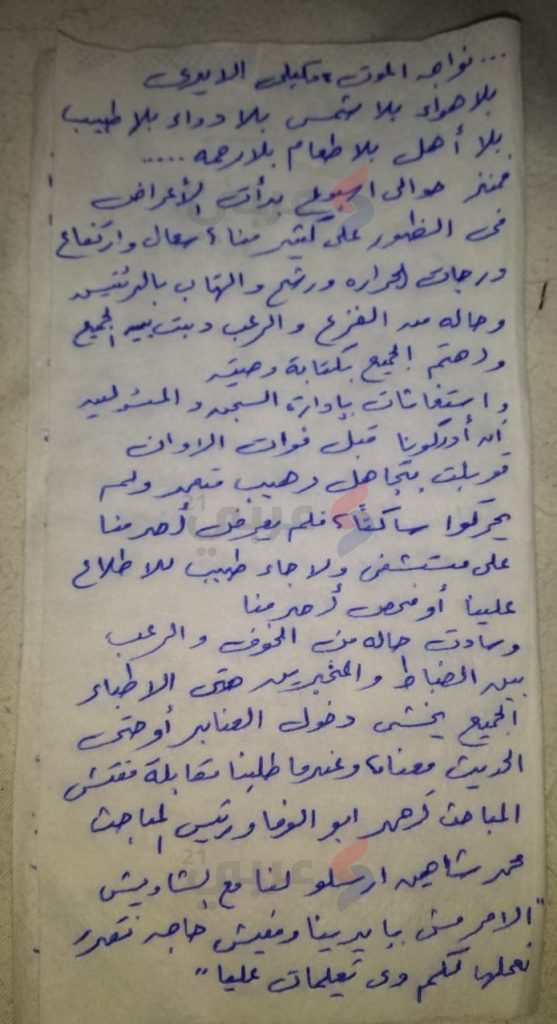
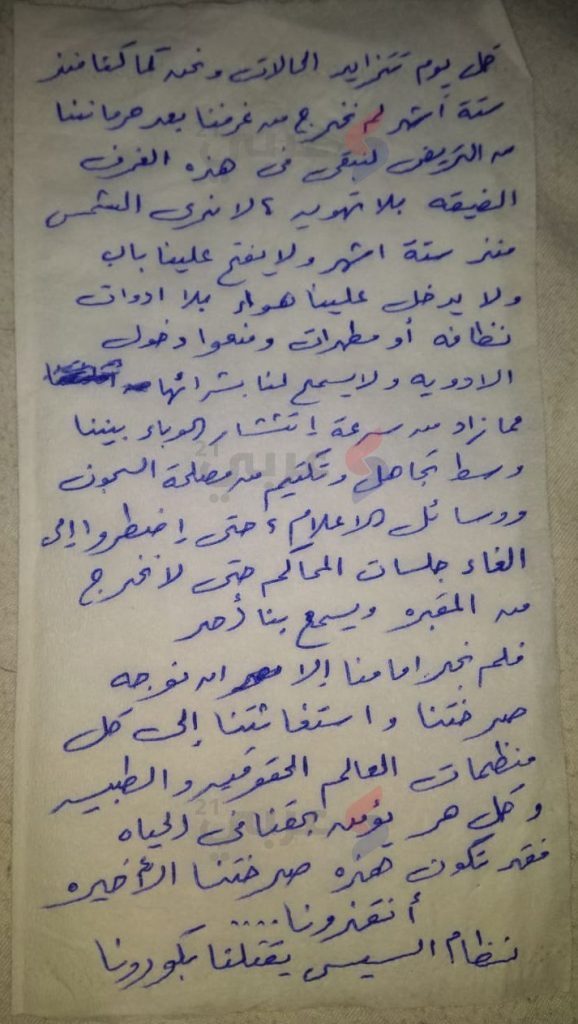
The Aqrab (Scorpion) prisoners revealed that prisoners that have symptoms of coronavirus are increasing on a daily basis, adding: “As we were 6 months ago, we have not left our cells that lack ventilation, sun rays, toiletries and disinfectants as the prison administration has deprived us of exercise.”
In the face of this, calls and appeals from the prisoners, their families and human rights organizations to release prisoners continued, in light of the severe threat that the spread of coronavirus poses to their lives.
On the other hand, the 25-30 bloc in the Egyptian parliament, which is fully controlled by the government security services, appealed to the prosecutor general and the “president” to take five steps concerning those held in custody, prisoners, and political prisoners, as well as the medical critical cases and the elderly who are not implicated in practice of violence – including conditional and health release of prisoners. This came in a statement issued by the 25-30 bloc on Tuesday within the framework of the precautionary measures to prevent spread of coronavirus.
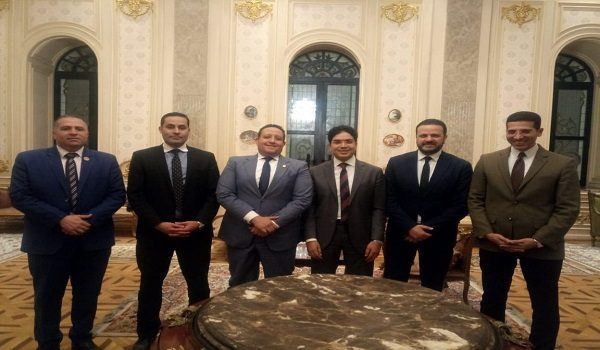
Basem Youssef, a well-known Egyptian TV presenter living in the United States, published a post on his Facebook account, appealing to “the political leadership in Egypt” to release prisoners, stressing that the time has come to put aside differences in favor of “the health of our loved ones”, as the threat posed by the coronavirus is likely to develop so much and hurt everyone in disregard of their political attitudes.
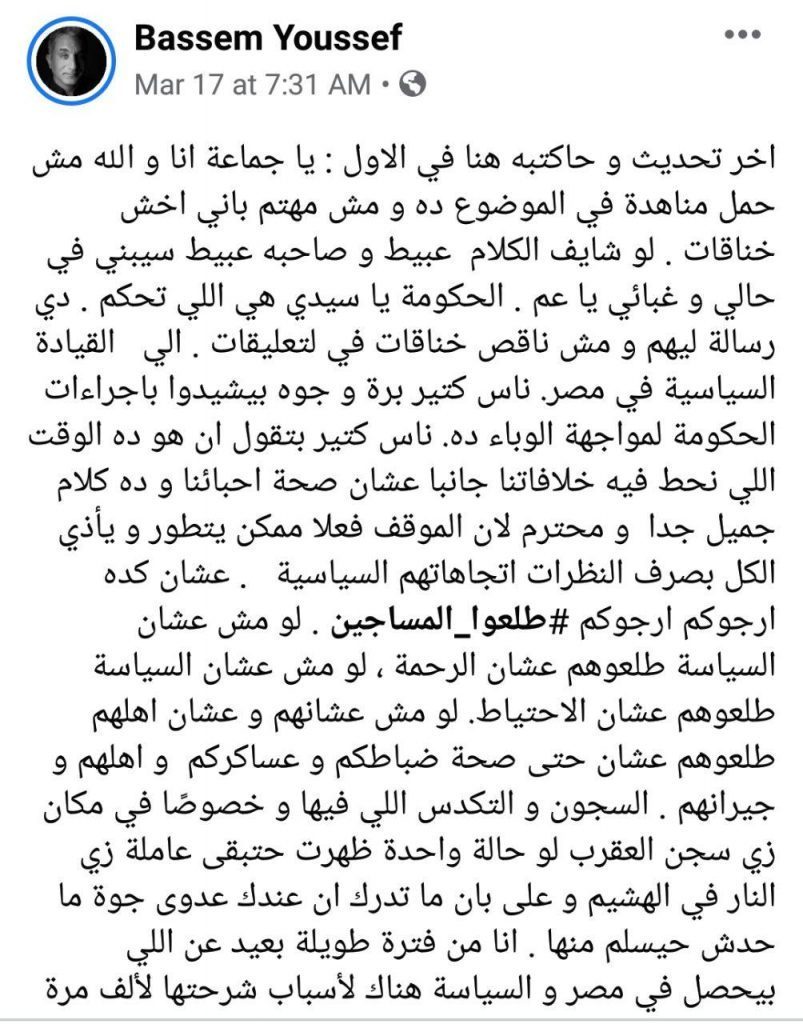
Youssef asked the Egyptian authorities to have mercy on the prisoners and release them as a precautionary procedure for the benefit of all, including prisoners and their families, prison officers and soldiers, their families and neighbors, especially in overcrowded prisons such as Scorpion Prison, where one infected case could lead to a disaster by spreading the COVID-19 among prisoners and officers, excluding no one.
In a related context, Ahmed El-Tantawy, an Egyptian member of parliament, demanded the release of detainees who have remained in custody for more than 150 days in line with measures taken by the regime to confront the spread of the coronavirus.
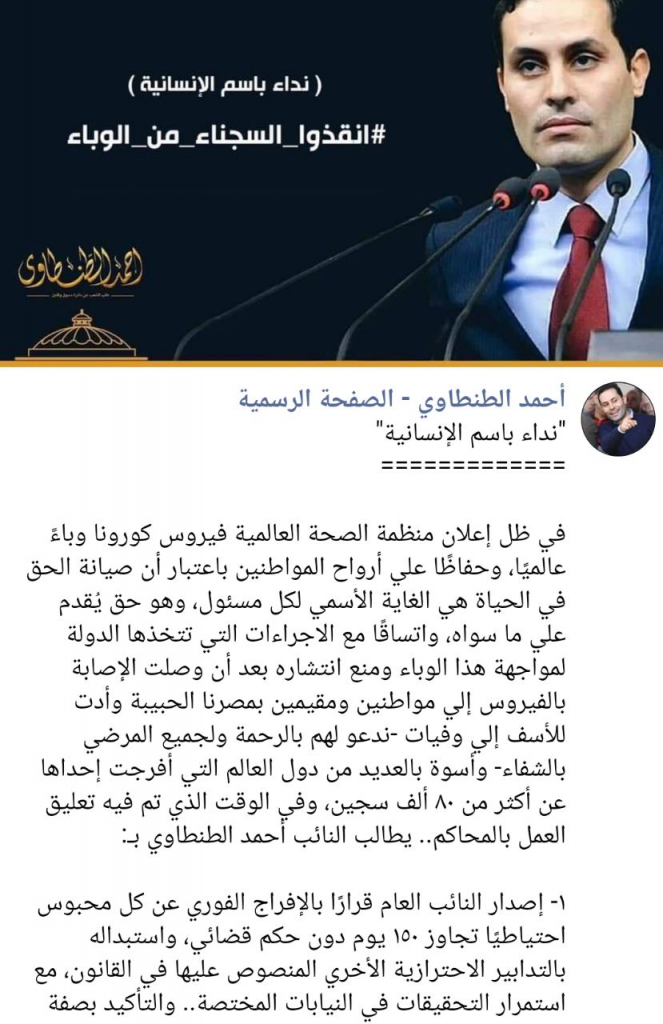
In a post on his Facebook page, Al-Tantawi called on the Prosecutor General to replace imprisonment with other precautionary measures stipulated in the law, with continued investigations in the relevant prosecution offices.
In the same context, Leila Suef, the mother of the political activist and one of the icons of the January 2011 revolution, Alaa Abdel-Fattah, who was held in pretrial custody in Tora Prison, published a post on her Facebook page, calling on the Prosecutor General and appealing to him to release her son “in light of the frequent discovery of COVID-19- infected cases inside Egypt and the World Health Organization (WHO) announcement that the coronavirus is as a global pandemic, that led the Egyptian authorities to take drastic measures such as closing schools and banning gatherings in an attempt to reduce the spread of the virus”.
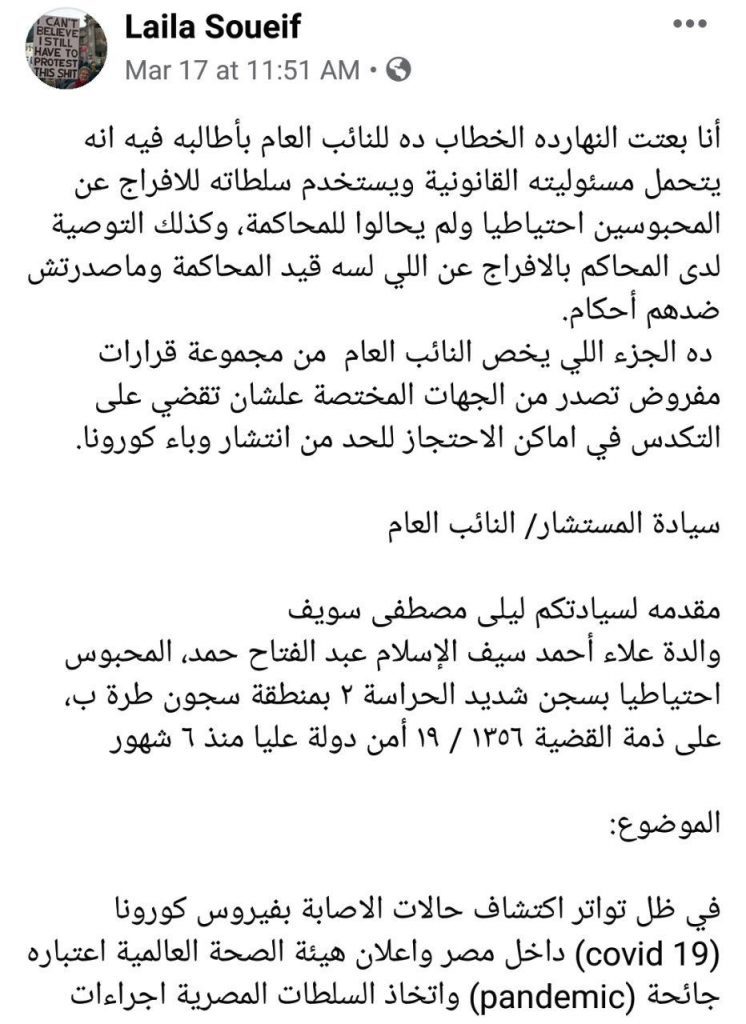
Observers have consistently raised concerns about Egypt’s ability to confront the coronavirus, largely due to the country’s poor health care system.
Public healthcare in Egypt suffers from a lack of government funding, is marred by unsafe working conditions and staff shortages. A number of doctors have quit due to being paid poorly, which has left the industry at a shortage.



